"Ukrainians have accepted that nothing will be the same as before"
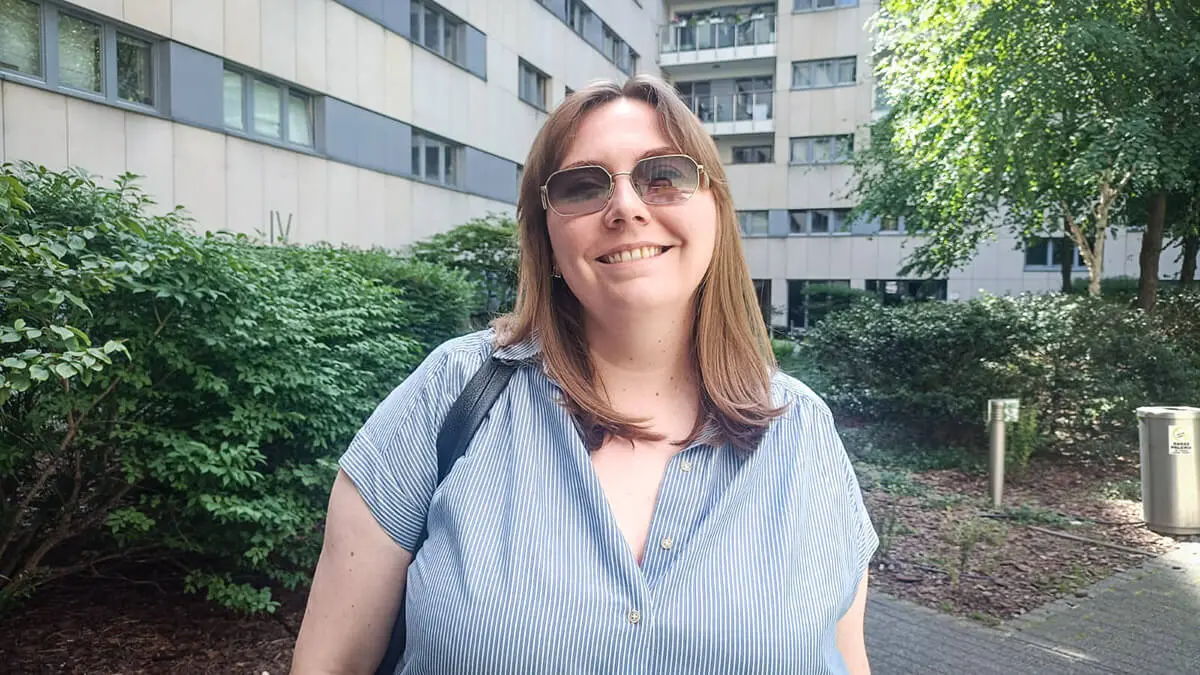
Kateryna Palanska, Ukrainian refugee and activist, came to the microphones of Onda Madrid's "De cara al mundo" programme to talk about the life of Ukrainian refugees and their concerns about whether they will be able to return to their country to rebuild their lives, or whether they are "condemned" to live in Europe far from their homes.
Kateryna Palanska, Ukrainian refugee, activist, who works helping many refugees, collaborating with Spanish NGOs in their humanitarian aid work. How long have you been in Warsaw?
In Warsaw for almost a year and a half, but at the beginning of the war I went to Spain, and I was there for almost six months as well, I am travelling between Spain and Poland, although I continue to go to Ukraine to manage all the possible aid that can be done.
Because you, Kateryna, how old are you?
I am thirty-two
Before the Russian invasion, what did you do for a living?
I have been working in the technology centre for many years and I have been living in Kiev for the last 5 years.
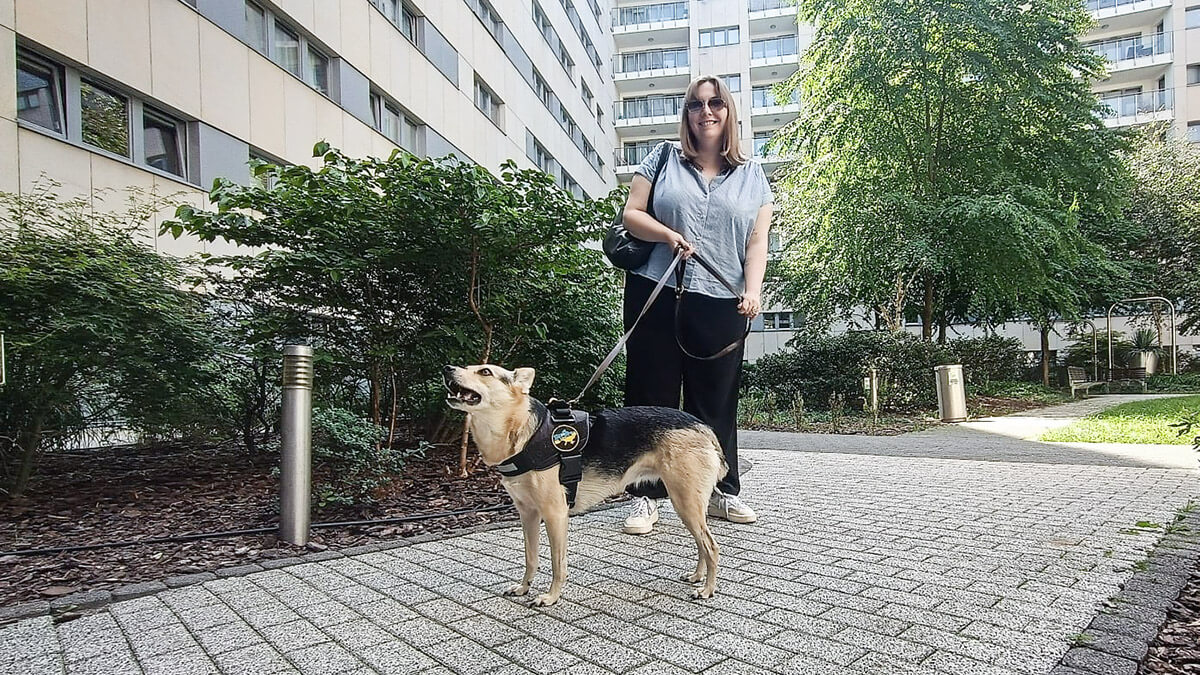
How is your family in Ukraine, if you have left family in Ukraine?
Yes, all my family and friends are still living in Ukraine. My father, my brother, my nieces, and the only one who is outside is my mum, that's why we went to Spain, because she is there. Ukrainians are trying to survive, adapting to the new reality in Ukraine.
It's very complicated, my father is ex-military, so he always has to keep a close eye on all the check-ups in case he has to enlist if it's his turn, let's say. And the rest, like most conscious Ukrainians, go on with their lives and do what they can to help us win this war as soon as possible.
When and why did you decide to leave Ukraine with your mother?
We left twice. The first time was the beginning of the war because it was something very unknown and we experienced it first hand, literally a missile fell three blocks from our flat and we didn't understand what was going to happen, what it was going to be like, and in a panic, we decided we'd better leave and see what happens.
In September we tried to get back to life because things seemed better, or at least you could try to adapt, but psychologically we couldn't stand the stress of the missiles falling on Kiev. There were very strong waves of missiles every week, massive attacks, then came the blackouts and we made the decision to move to Poland, first because of proximity, because we could still go to Ukraine when we needed to, and for work, because we worked remotely and my husband's office was here in Warsaw, we decided it would be a good place to stay.
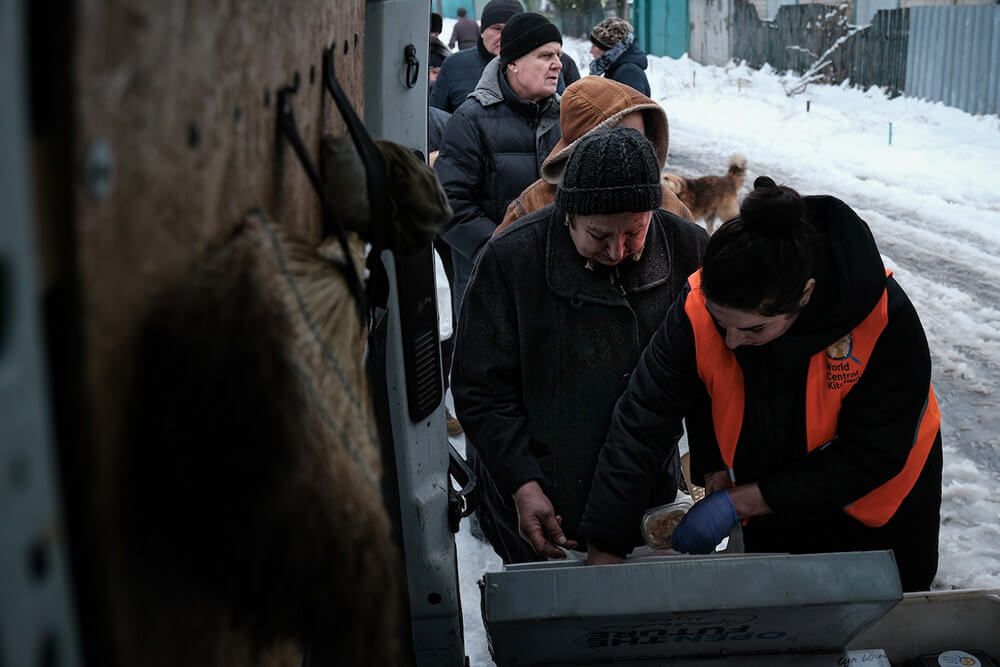
Do you, Kateryna, in addition to your work in technology, help Ukrainian refugees in Poland?
Not only in Poland, honestly many of them were the refugees who went to Spain, because that's the place I knew the most, where we had some help from Spanish, original Ukrainian NGOs and we were still doing it until recently to teach first aid and haemorrhage control to the Ukrainian civilian population.
So we try to get involved in these kinds of social projects, even if it's not a full-fledged job, but we try to combine it and try to help. The refugees who went to Spain at the beginning, with all the paperwork, in general to find out how to get there, because many couldn't leave, not everyone had their own car, all of that had to be done little by little.
Do you have children?
No.
Where did you learn to speak Spanish so well?
I have a mix, I grew up in Latin America, in Paraguay, and then I lived in Spain for 8 years before returning to Ukraine.
Do you, with the NGOs you work with or the organisations you help, receive the international aid they need?
I'm not going to lie, it's very complicated. Unfortunately, if you are not an official NGO, in the sense of internationally recognised, many people don't trust you. It's a very hard job to look for any kind of partnership or help from companies, because there is still a lack of trust in medium-sized or local NGOs that do their work on a one-off basis, but useful locally speaking.
Yes, we have received help, but very occasional, and, to be honest, the support ends up being internal within the Ukrainian bodies in the country. I can't say that it doesn't exist, because it does, but it is a very heavy bureaucratic process that is necessary to be able to get some kind of help from outside.
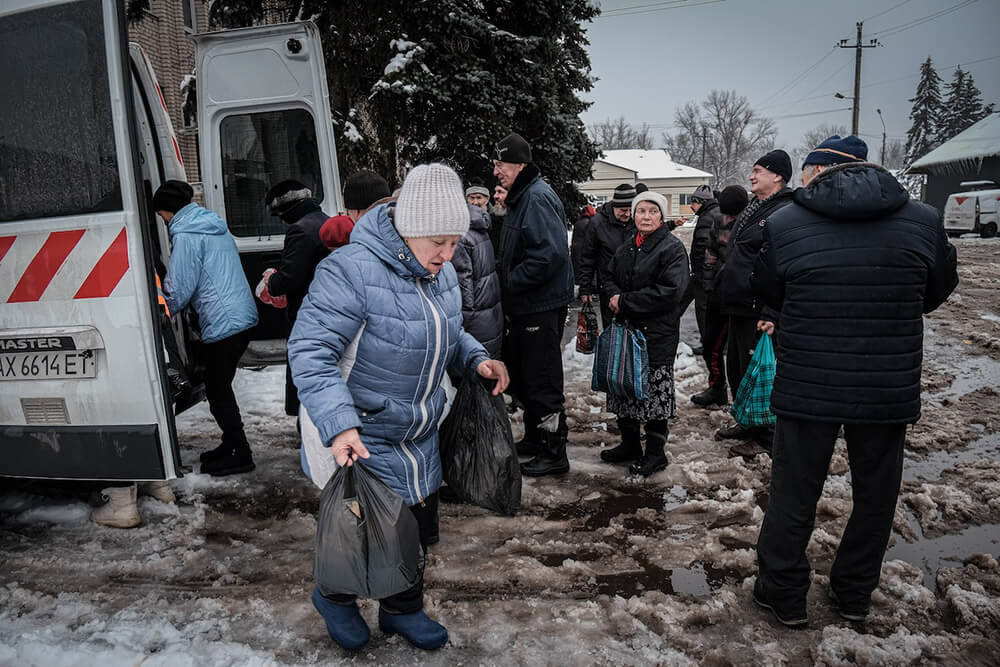
How is your morale after more than two years of the Russian invasion?
It depends on the day. After the first two and a half years I feel, like most people still living in Ukraine, we have reached an internal level of cynicism, in the sense that emotions are a bit dampened, because you need to keep yourself alive. It is a continuous struggle.
There are a lot of new emotions that came to the surface two years ago, and they are not very good, among them there is a lot of pain, a lot of anger, but also hatred. These are things that we live with day by day and try to deal with, and it's still like that. It all depends on what day, how many attacks there are, how many people are injured or missing.
Unfortunately, every Ukrainian right now is always going to have one person who has suffered some kind of attack, or has been killed, or is on the frontline, whether it's a friend, an uncle, or your neighbour.
Do you dream of getting your old life back, or is that going to take a lot of time and a lot of effort, and maybe a lot of political bargaining?
To be honest, I think many of us stopped dreaming at least a year ago, and we have accepted the reality that it will never be like before, and all we want is for the future to have a certain level of security for all the generations that are being lost, scattered in the current reality of Ukraine, and that we can somehow rebuild the country. But it will never be anything like before. It may be better, it may be different, but the important thing is that there is such a future.
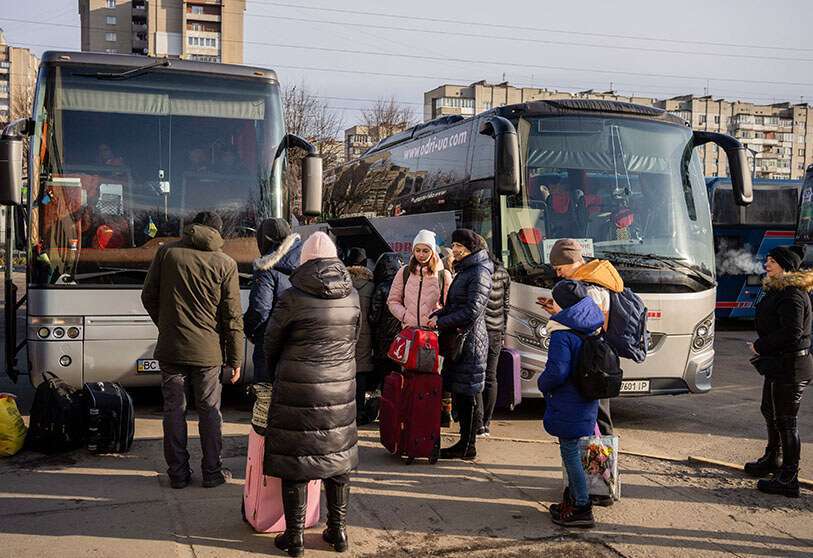
Maria Senovilla, you are there close to Kateryna, can you describe what she is like? What have you talked to her about? Do you have any questions to ask her?
A short while ago we were walking with Kateryna through the old part of Warsaw, the place where the Warsaw Ghetto was, where the Jews were imprisoned, and where the city was razed to the ground and bombed to the ground. And we commented on similarities that could now be made with the case of Ukraine, the enormous amount of reconstruction that is going to be necessary, everything that has been razed to the ground in Ukraine, how they are going to build it, whether it will be like Poland is now, that they have tried to recreate what the city used to be like, but you can see that it is all newly built.
It's reminiscent of the horrors that happened here during the Second World War. It's a period that has been etched in the architecture, in the streets, that you can see and distil when you walk through it. I was asking Kateryna if she was planning to go back to live in Ukraine, and if the rest of the Ukrainian community also wanted to go back, or some were already saying no, that they were going to stay in the host places, because they saw the possibility of the war ending, and of there being a place to go back to, getting further and further away.
That's right. There are many people who are already ruling out the possibility of returning to Ukraine, which was not the case when the war started. When the war started, if you asked any refugee who had gone to any country, the first thing they would say is I want to go back home now. How has this perception of the Ukrainian community changed, Kateryna? You are very close to those who live in Poland, your mother has a lot of contact with those who live in Spain, how do you discuss these things?
Yes, like any critical moment at the beginning, everybody, logically nobody thought that the war could last for almost three years. At the beginning, everyone thought that in a month, maybe two or three months, we were all going to return. I'm sure that if it had been like that, even if it had been a year, everybody would have come back. In fact, there was a wave of Ukrainians who have returned, and others who are still coming and going. Understanding from the beginning, everyone knew that the more time passes, the higher the level of adaptation of most of the refugees who are displaced by Europe in other countries.
You also have to consider that many left with children, so automatically these children are already in schools, they are starting, with their schooling, and the parents maybe alone, because Ukrainians are family people, and it is a relevant act to decide where your family will continue to live. And security. Nobody can give Ukraine any guarantee that, even if they come back, in a couple of years the same thing will not happen again. Everything is going right now, it is in a stand-by. The people who wanted to return are definitely decreasing, that's how it is.
Everything will depend on how the situation ends and what the possibilities are in the country. Logically everyone understands that the country will be in an economic disaster, and the whole post-war moment will be worse. It is not the fear of the Ukrainians, because we are workers and we are not afraid, but the security and stability of the security level can be a very strong impediment to the return of the Ukrainians.

To close this very interesting and also profound interview, Kateryna, you can send whatever message you want, whatever you think is appropriate to Spanish society, to international society. Say whatever you like.
I always say one thing. I understand that on a day-to-day basis it is a little complicated to be active in empathy and to understand that there is a war just four hours away by plane. But the one thing I always remind all people living in the European Union: don't be taken by surprise by the things that can happen.
Everything is changing very fast. Ukraine is right here, right next door, and there are more than 40 million of us who are suffering day by day. But the most important thing in this is that people realise that the changes that are happening globally can affect them any day.
And don't be caught by surprise, because the worst thing that can happen is to wake up one day and your life changes completely, because they start bombing your country. Hopefully that won't happen. Hopefully people's conscience and there will be more social pressure on European leaders, because that was the difference between war and support, unlike in 2014, when everyone turned their back on us, it was social pressure. If they find a gap in their agenda to remember us, we will always be grateful. We already are. But it is something that will save many lives.
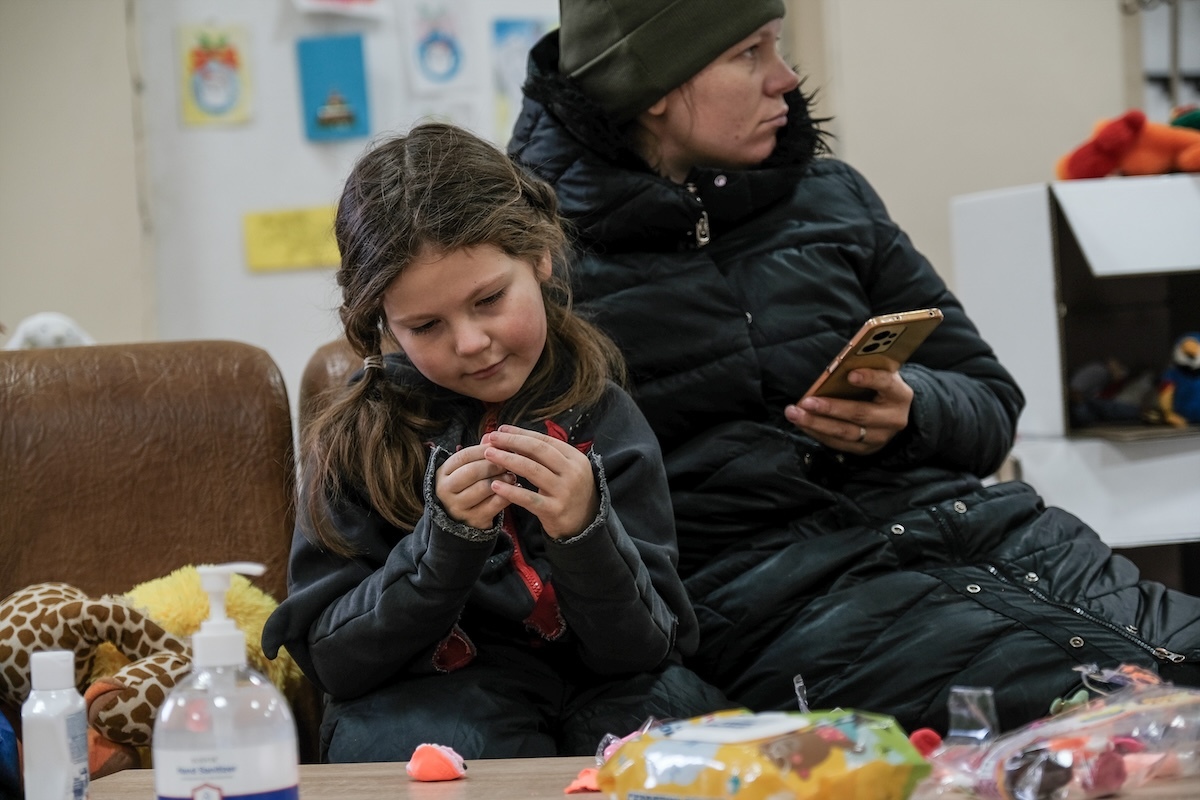
Kateryna, we went through it and it is not so long ago that we forget what it is like to go through a war in your country. Europe suffered after the Second World War, so we understand perfectly well and, above all, it is our commitment and our duty to tell the new generations who were born in democracy, who were born in peace, who were born with stability and with money in their pockets, that life is not always this happy and easy, that we must stand in solidarity right now with the Ukrainians, with people like you, Kateryna, and that, as Mr Zelensky says, the West is defending itself, is defending itself in Ukraine, which we must not forget because in Ukraine we are also playing for freedom and democracy in Europe.
That is right. And freedom is not a gift, it is fought for every day.









